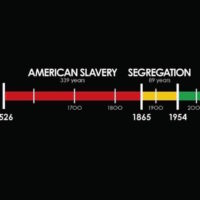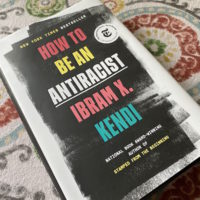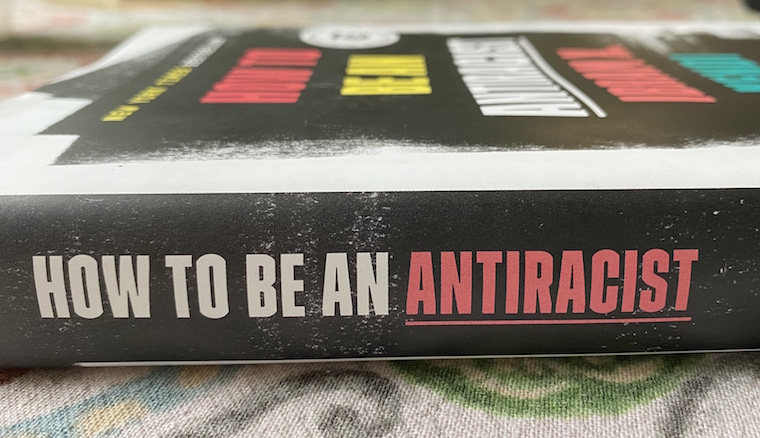“To be antiracist is to think nothing is behaviorally wrong or right — inferior or superior — with any of the racial groups. Whenever the antiracist sees individuals behaving positively or negatively, the antiracist sees exactly that: individuals behaving positively or negatively, not representatives of whole races. To be antiracist is to deracialize behavior, to remove the tattooed stereotype from every racialized body. Behavior is something humans do, not races do.†― Ibram X. Kendi
Category Archives: Antiracism
September
2020
September
2020
It is Not Enough to be Neutral
“The most threatening racist movement is not the alt right’s unlikely drive for a White ethnostate but the regular American’s drive for a ‘race-neutral’ one. The construct of race neutrality actually feeds White nationalist victimhood by positing the notion that any policy protecting or advancing non-White Americans toward equity is ‘reverse discrimination.†― Ibram X. Kendi
September
2020
Granted & Grasping Privilege
Every once in a while social media delivers some succinct explanation of a complex issue that speaks to reason and justice in a rational and calm context. Here’s that find for me in the last few weeks – wish I knew who wrote it:
In case it’s still unclear… 400 years ago white men enslaved black people. And sold them. And treated them as less than human. For 250 years. While white men created the country’s laws and its systems of government. While 10 to 15 generations of white families got to grow and flourish and make choices that could make their lives better.
And then 150 years ago white men “freed” black people from slavery. But then angry white men created laws that made it impossible for them to vote. Or to own land. Or to have the same rights as white people. And even erected monuments glorifying people who actively had fought to keep them enslaved. All while another 5 to 10 generations of white families got to grow and accumulate wealth and gain land and get an education.
And then 60 years ago white people made it “legal” for black people to vote, and to be “free” from discrimination. But angry white people still fought to keep schools segregated. And closed off neighborhoods to white people only. And made it harder for black people to get bank loans, or get quality education or health care, or to (gasp) marry a white person. All while another 2 to 3 generations of white families got to grow and pass their wealth down to their children and their children’s children.
And then we entered an age where we had the technology to make public the things that were already happening in private – the beatings, the stop and frisk laws, the unequal distribution of justice, the police brutality (in the south, police began as slave patrols designed to catch runaway slaves). And only now, after 400+ years and 20+ generations of a white head start, are we starting to truly have a dialogue about what it means to be black.
White privilege doesn’t mean you haven’t suffered or fought or worked hard. It doesn’t mean white people are responsible for the sins of our ancestors. It doesn’t mean you can’t be proud of who you are.
It does mean that we need to acknowledge that the system our ancestors created is built for white people.
It does mean that Black people are at a disadvantage because of the color of their skin, and
It does mean that we owe it to our neighbors– of all colors– to acknowledge that and work to make our world more equitable.
#BlackLivesMatter
September
2020
American Life
“It’s been said that racism is so American that when we protest racism, some assume we’re protesting America.” ― Robin DiAngelo
August
2020
There Is No In-Between
“One either allows racial inequities to persevere, as a racist, or confronts racial inequities, as an antiracist. There is no in-between safe space of “not racist.†The claim of “not racist†neutrality is a mask for racism.†― Ibram X. Kendi
August
2020
A Simple Hard Truth
“I think I know – we see it around us every day – the spiritual wasteland to which that road leads. It is so simple a fact and one that is so hard, apparently, to grasp: Whoever debases others is debasing himself. That is not a mystical statement but a most realistic one…” ~ James Baldwin
August
2020
Sunday Night Wisdom
“If you are neutral in situations of injustice, you have chosen the side of the oppressor. If an elephant has its foot on the tail of a mouse, and you say that you are neutral, the mouse will not appreciate your neutrality.†―Desmond Tutu
July
2020
In A World of Racists, Be an Antiracist
Almost every single person who grew up in America is racist. You, me, and just about every other American we will ever encounter has been raised in a country where racism has been embedded for centuries. In the most basic ways, we are united in our racism. That’s not an easy thing to say, and it’s even harder to accept. Yet accepting that and coming to the realization of it is the first step in becoming an antiracist. Such is the challenge of overcoming racism as proposed by Ibram K. Kendi in his powerful book ‘How To Be An Antiracist’.
Like many of my open-minded friends, I’ve always prided myself on being one of the least racist people I know. Even the most harmless of racial jokes, made by the person whose race was the topic, always rubbed me the wrong way. Even when joking with fellow Filipinos about our culture, and painting a group of people with broad strokes, even when done in an affectionate and adoring way, made me uneasy. I heard it in family and friends, from strangers on the street and from the television and movie screen. I was keenly aware of those moments when we separated ourselves and attributed differences to each other based on race. At times, I may have been too keenly aware.
The first time I introduced Suzie to Andy and he said, “Oh, Suzie Chapstick!†I was about to leave his house because I thought he was making a chopstick reference to her Asian heritage, when in reality he was referencing a not-quite-famous-enough Chapstick commercial that I’d never seen. That’s how sensitively attuned my racial antennae were.
So it came as a somewhat of a shock to realize that despite how careful I’d been, I was still upholding racist notions and policies simply by existing and not actively working against them. Because at this point in our history, the racial inequities are so vast and irrefutable that simply not being racist is no longer enough, and complacency in allowing such inequities to remain is a racist act in itself. That’s a harsh truth to take, and some will argue against it. That’s their right. That’s your right. But for me, I am owning up to being a part of the system, and the first step in changing that is in such ownership.
Too many well-meaning people like to claim they are ‘colorblind’ and that they don’t see color or race, treating everyone as equal, and in an ideal world of equality this would work. But we don’t live in that ideal world. Far from it. The numbers don’t lie, and until such time as the racial inequities are erased, simply standing by and starting each day as if we are all equal ignores those inequities. It dismisses the fundamental and real state of our country. And it is, in its tacit agreement to go with the status quo, an act of racism. That took a while to sink in and understand. It took a while to re-examine my entire life with such a startling perspective. And, in the end, it helped me see that I was a racist in not doing more.
“The most threatening racist movement is not the alt right’s unlikely drive for a White ethnostate but the regular American’s drive for a “race-neutral†one,†Kendi writes. “The construct of race neutrality actually feeds White nationalist victimhood by positing the notion that any policy protecting or advancing non-White Americans toward equity is “reverse discrimination.â€â€
That’s a startling concept when you think about it. In a sterile environment where we start from a place of equality, the idea of not seeing someone’s race or color is, in abstract form, seemingly the most equal and fair way to begin. But we are not living in a sterile environment of equality; we are living in a country and world of socially-constructed hierarchies and labels, and they are so deeply ingrained in our make-up from birth, that it is very difficult for people to understand that we will never be able to truly start from a point of equality because that world has not existed in many lifetimes. That realization unlocked a lot of things for me, and looking at what is going on in our country now, I understand a little better.
This is my way of changing. It begins with a book. It begins with a blog post. It begins with sharing this with a friend, and another friend, and another friend. It begins with being open to something new, and open to changing long-held beliefs. It begins by opening up to being imperfect, to being racist at times. Most importantly, it begins by opening up to being antiracist, and all the challenges and hopes and possibilities that in turn opens up.
{You may order ‘How To Be An Antiracist’ here; also check out Ibram X. Kendi’s website here.}








